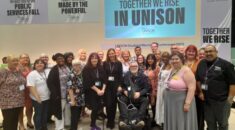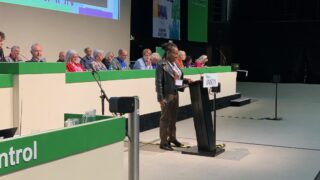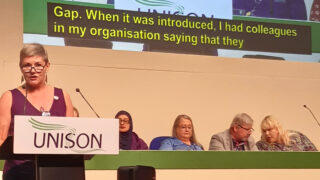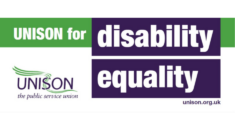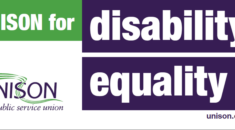UNISON general secretary Christina McAnea has written to the chancellor, Jeremy Hunt, urging him to make “real and positive change” for disabled workers, after the disappointment of yesterday’s autumn statement.
“If this government is serious about helping disabled people in the workplace, it needs to tackle the root cause of what makes working life so difficult for so many of them,” she writes. “Threatening benefit cuts or accusing disabled people of ‘not doing their duty’ achieves nothing.”
Ms McAnea was writing on behalf of 200,000 disabled workers who are members of UNISON. She noted that benefit changes announced in the autumn statement to supposedly encourage disabled people to work from home will, in fact, significantly reduce the income of those who aren’t able to do that.
At the same time, she said, “disabled people are being pushed out of the workforce due to a refusal from employers and government to provide the support they need to be able to get on at work.”
In a recent UNISON survey, three-quarters of disabled people said they had been refused some or all of the reasonable adjustments they need to do their job. Even where reasonable adjustments were agreed by the employer, a quarter of disabled people said they waited a year or more for them to be implemented.
“Being refused reasonable adjustments, or having to wait for their implementation, can leave disabled workers struggling with pain and fatigue, which then has an impact on their performance and productivity,” Ms McAnea writes.
“The way to support disabled people in the workplace is to ensure their reasonable adjustment requests are taken seriously, strengthen the right to disability leave and cut waiting lists for people to access the access to work scheme.”
These are all key elements of the disability employment charter, of which UNISON is one of the founding organisations. UNISON has met with the minister for disabled people, health and work to discuss the charter. Concluding her letter, Ms McAnea requested a similar meeting with the chancellor.


